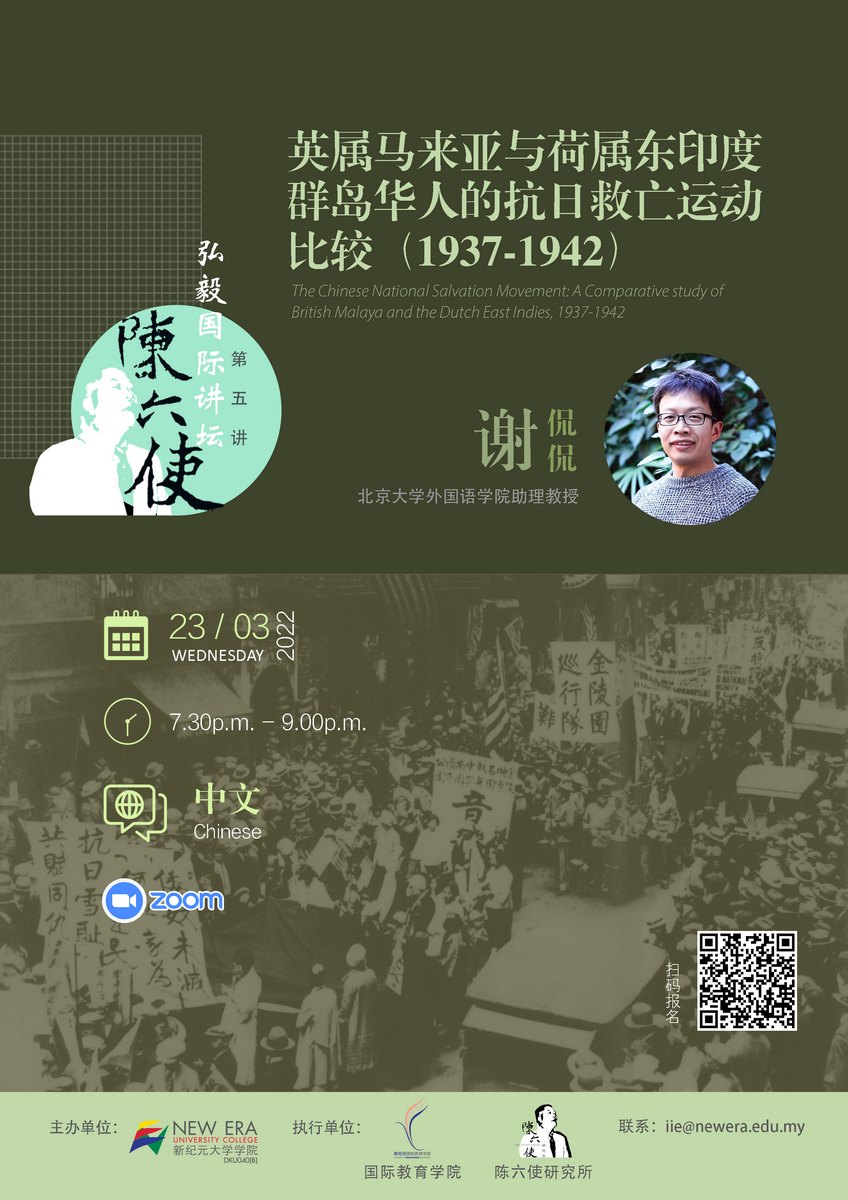[5th Talk] Asst. Prof. Dr. Xie Kankan: “The Chinese National Salvation Movement: A Comparative of British Malaya and the Dutch East Indies, 1937-1942”
Upcoming Event

|
Introduction |
The fifth talk in the “Tan Lark Sye Lecture Series” will take place later this month. Dr. Xie Kankan is going to present a comparative study of British Malaya and the Dutch East Indies during the Chinese national salvation movement (1937-1942). |
|
Speaker |
Dr. Xie Kankan (Assistant Professor, School of Foreign Languages, Peking University) |
|
Moderator |
Dr. Lew Siew Boon ((Assistant Professor at the International Education College of New Era University College)) |
|
Information |
Date: 23 March 2022 (Wednesday) |
Trailer (Video)
Lecture Postscript
The 5th session of the "Tan Lark Sye Lecture Series," organized by the Institute of International Education, New Era University College (IIE, NEUC) and the Tan Lark Sye Institute, was held on 23th March 2022. The guest speakers for this event was Asst. Prof. Dr. Xie Kankan from the School of Foreign Languages, Peking University, China. It was attended by more than 240 people.
Asst. Prof. Dr. Xie Kankan holds a Ph.D. in History from the University of California, Berkeley. He is currently an assistant professor at the School of Foreign Languages at Peking University, with a research focus on modern and contemporary history of Indonesia. Dr. Xie has studied and conducted research in countries such as the United States, the Netherlands, Indonesia, Malaysia, and Singapore.
Dr. Xie's lecture is titled “The Chinese National Salvation Movement: A Comparative of British Malaya and the Dutch East Indies, 1937-1942.” It primarily introduces the anti-Japanese salvation movements among the Chinese in British Malaya and the Dutch East Indies from 1937 to 1942, comparing the two to highlight the differing perspectives between regions and countries. This will help the audience gain a clearer understanding of the overall landscape of the anti-Japanese salvation movement's development in Southeast Asia. The event was moderated by Assistant Professor Dr. Lew Siew Boon from NEUC. It received enthusiastic feedback, with the audience actively participating in the Q&A session and eagerly engaging in discussions.


”.jpg)

